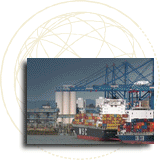
AID FOR TRADE: MAINSTREAMING AID FOR TRADE AT A THEMATIC LEVEL — 19 JULY 2010
Workshop on monitoring and evaluation of Aid for Trade
See also:
> More
on Aid for Trade
|
Opening remarks 10 a.m. — 10.10 a.m. |
|
|
|
|
|
SESSION 1: 10.10 a.m. — 12 noon |
|
|
OECD: |
The OECD's Work to Increase the Effectiveness of Aid for Trade: Performance Assessment Framework and Analysis of the Binding Constraints to Trade |
|
|
|
|
World Bank: |
The World Bank's Approach to Work on Evaluation of Aid for Trade |
|
|
|
|
United States: |
Evaluation of Trade Capacity Building (2002-2006) |
|
|
|
|
UNECA: |
The State of Monitoring and Evaluation Knowledge in Africa |
|
|
|
|
Discussion |
|
|
The presentations and discussion provided Members, Observers and Observer Organizations with
valuable information on current approaches to evaluation and
showcase preliminary findings on the impact that Aid for Trade
is having at the national and regional level. It also
provided insight into methodological difficulties in evaluating
Aid for Trade and discuss ways to overcome these shortcomings. |
|
|
SESSION 2: REPORTING ON OUTCOMES AND IMPACTS AS PART OF THE JOINT OECD/WTO AID-FOR-TRADE MONITORING FRAMEWORK
12 noon — 1 p.m. |
|
|
OECD: |
Case-Story Approach and Monitoring and Evaluation Framework |
|
|
|
|
Discussion |
|
|
The presentation by the OECD and the
discussion allowed Members, Observers and Observer Organizations
to review the framework for the next monitoring and evaluation
exercise. It was outline a note which provides
suggestions to increase the availability of information
regarding the outcomes and impacts of Aid-for-Trade projects and
programmes, in particular in the lead up to the next Global
Review of Aid for Trade. It proposes using short case stories
(maximum 4 to 5 pages) to allow stakeholders to share their
experiences. These case stories will put a spotlight on: what is
working (and not), and why, at the national and regional level;
which good examples can be replicated; and where improvements
are needed. This reporting will complement the existing
Aid-for-Trade monitoring framework and provide an important
source of additional information for both the joint OECD/WTO
publication and the Third Global Review of Aid for Trade. |
|